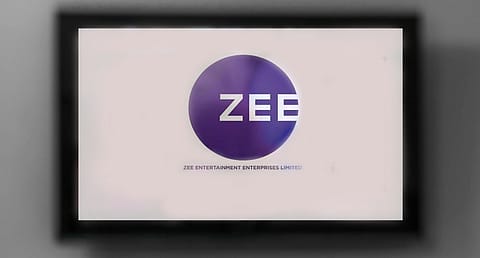SEBI bars ZEE’s Subhash Chandra, Puneet Goenka from directorial role in any listed entity
SEBI probe reveals Chandra and Goenka allegedly siphoned off ₹200 crore from ZEEL for their own benefit

After confirming siphoning off of funds worth ₹200 crore for their own benefit, the Securities Exchange Board of India (SEBI) has banned Zee Entertainment Enterprises’ former chairman Subhash Chandra and his son and MD & CEO Punit Goenka from holding the position of a director or key managerial personnel in any listed company or its subsidiaries.
“The Noticees (Chandra and Goenka) shall cease to hold the position of a director or a key managerial personnel in any listed company or its subsidiaries until further orders,” SEBI's June 12 order stated.
The case pertains to SEBI's probe after the resignation of two independent directors (Sunil Kumar and Neharika Vohra) of Zee in November 2019 after raising concerns over several issues, including appropriation of certain fixed deposit (FD) of ZEEL by Yes Bank Ltd (Yes Bank) for squaring off loans of related entities of Essel Group.
The probe revealed Chandra, the then chairman of ZEEL/Essel Group, provided a ‘letter of comfort’ on September 4, 2018, towards credit facilities availed by certain group companies from Yes Bank. Neharika Vohra's resignation letter to then ZEEL chairman showed this LoC was known only to a few persons in management and even the board of ZEEL was not aware of the same, SEBI said.
On the strength of the LoC, Yes Bank adjusted a fixed deposit of ₹200 crore of ZEEL for meeting the obligations of seven entities, including Pan India Infraprojects, Essel Green Mobility, Essel Corporate Resources, Essel Utilities Distribution Company, Essel Business Excellence Services, Pan India Network Infravest, and Living Entertainment Enterprises.
Recommended Stories
These associate entities were owned or controlled by family members of Chandra and Goenka, the promoter family that is also the beneficial owner of promoters of ZEEL, found SEBI.
SEBI said Chandra and Goenka were the "direct beneficiaries" of the alleged fund diversion, since the associate entities that benefitted from "liquidation of FD of ZEEL by Yes Bank were owned or controlled by the promoter family", the order said, adding that both abused their position by siphoning off funds for their own benefit.
(INR CR)
"...the false submissions made to SEBI were part of an elaborate scheme orchestrated by the promoter family of ZEEL to divert assets of ZEEL and other listed companies of Essel Group to the promoters," the regulator said.
SEBI said ZEEL later submitted that ₹200 crore, equivalent to the value of FD which was encashed by Yes Bank for the dues from associate entities owned by the promoter family, had subsequently been received back in September-October 2019.
The regulator said though ZEEL had confirmed the receipt of ₹200 crore from the associate entities, SEBI found that Chandra and Goenka, without informing, consulting, and/or approval of the ZEEL board, had violated the norms.
The regulator then initiated adjudication proceedings against ZEEL, Chandra, and Goenka for the violations. ZEEL and Goenka had filed a settlement application that was rejected by SEBI and it decided to examine the matter further with regard to ZEEL’s claim of receipt of funds from associate entities.
"Analysis of the said bank statements showed that although ZEEL had claimed to have received Rs 200 crore from the abovementioned seven Associate Entities of the promoters, a major portion of the said funds had originated from either ZEEL itself or listed companies of the Essel Group, which after passing through several layers, reached the accounts of the Associate Entities from where it ultimately landed in ZEEL’s account," SEBI said.
The funds had followed a "circuitous route" where funds originated from ZEEL/listed companies of Essel passed through various entities owned or controlled by a promoter family and ultimately ended up with ZEEL, the probe found.
Further, although the promoter family is only holding 3.99% shares in ZEEL, Chandra, and Goenka continue to be at the helm of affairs of ZEEL, SEBI said. "While the investigation is still underway, their continuation as a director in any listed company or its subsidiaries is likely to be prejudicial to the interest of those companies, particularly its investors."